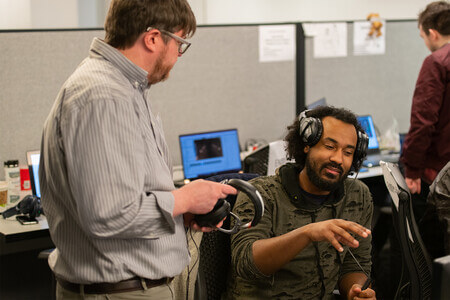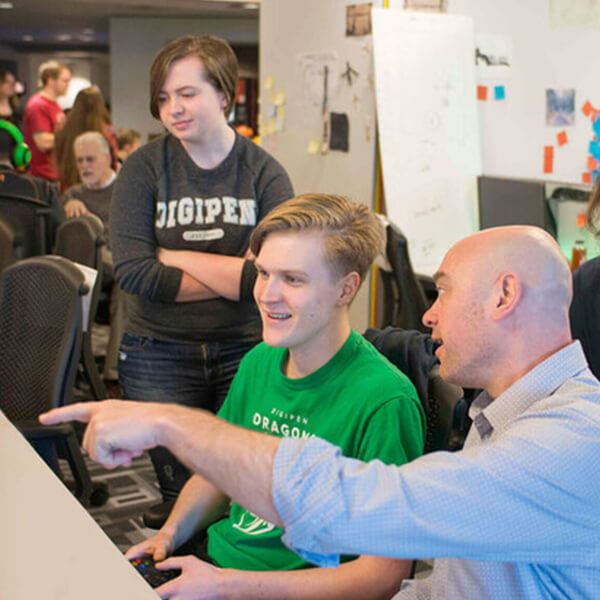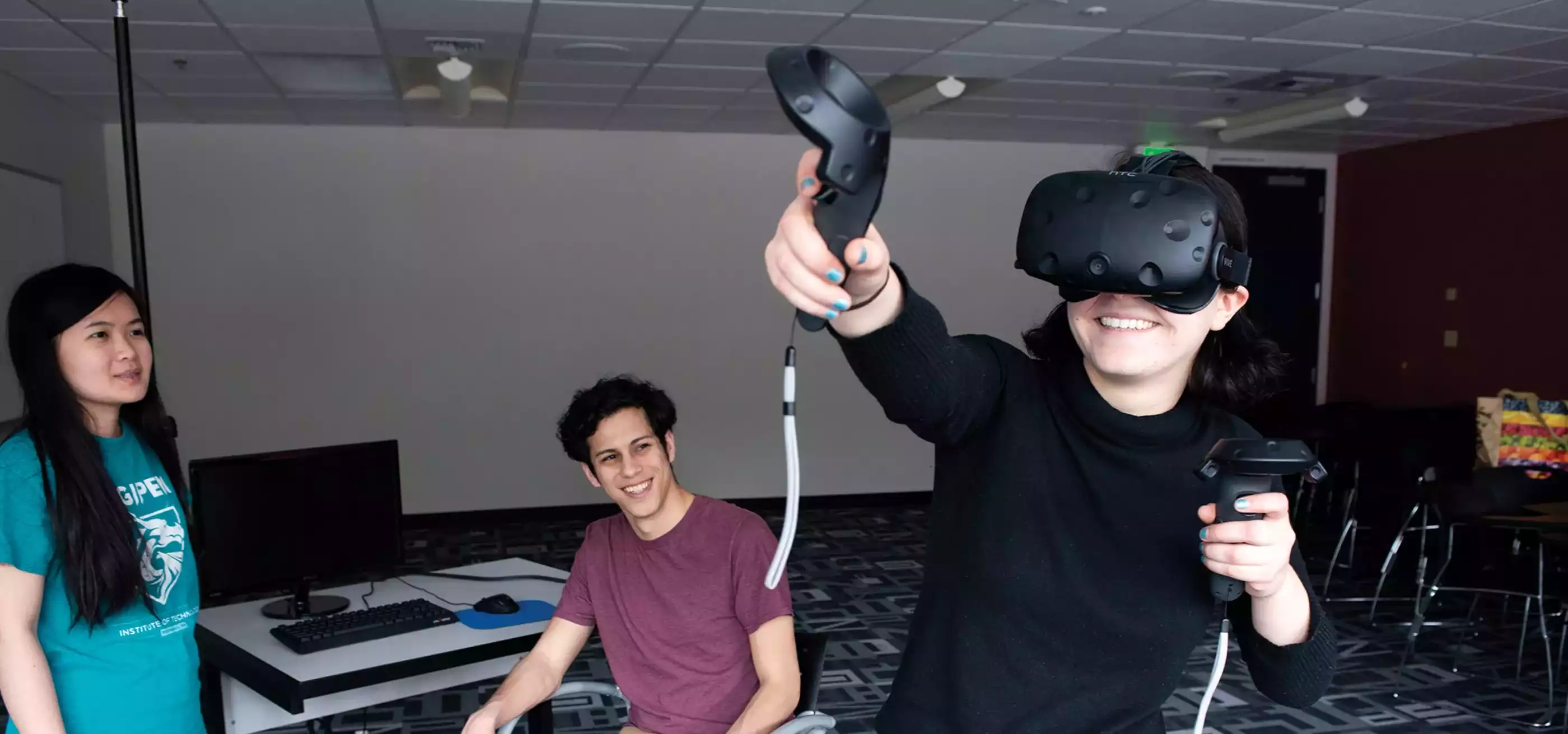Article updated on July 23, 2025.
Working on multidisciplinary, collaborative game team projects is a cornerstone of all four years of a DigiPen education. Read on for a breakdown of senior year game projects.
By the time students reach their senior year, the possibilities for their game projects broaden considerably.
“It’s a lot less structure than their previous years and much more open ended,” senior game project instructor David Saunders says. “The end goal is to get students prepared to enter the industry by emulating the loose requirements and fast-paced environment they’ll find there. That means seeing how they deal with ambiguity and much less direction than they’re given the first three years of their education.” The direction seniors do decide to take depends entirely on what they hope to do once they graduate, making senior game projects the most mutable of all game project years.
The end goal is to get students prepared to enter the industry by emulating the loose requirements and fast-paced environment they’ll find there.
“Senior game projects can take any form students want as long as it’s related to games in some way and they’re doing it as a team,” Saunders says. “It’s really all about the goals they set for themselves at the beginning of the course. We try to help them be as specific as possible about what they want to do once they graduate, make sure their project idea aligns with that, then let them dive in and see how well they swim.”
While senior game projects typically take the form of a professional-level 3D game, they can assume many other shapes as well. “We’ll get seniors who want to make a game engine, a mobile game, a pen-and-paper RPG, a web-based narrative game,” Saunders says. Whatever they decide, students have until the end of the first week to find a team to jump on board with them. “If they struggle to do so, we figure out what they’re trying to accomplish and help find where their personal goals could fit in on other project teams,” Saunders says.
Seniors may also join junior game teams, or choose to continue developing, expanding upon, and polishing their junior game projects during their senior year, resulting in student games with two-year development periods. Alternatively, students in DigiPen’s computer science programs may choose to take open electives instead of completing a senior year game project to fulfill the same credit requirements.
Senior game project teams are required to have regular hour-long mentor meetings roughly four times per semester. “We sit with the team and gauge the progress they’ve made towards the goals they set for themselves,” Saunders says. “Each of the mentors has decades of industry experience, so we offer interventions and things to consider for each student as any problems pop up.”

Since many students start internships their senior year, which also fulfills game project course credits, students may rotate in and out of senior game teams rather than staying for the entire two-semester development.
While junior year game projects are broken up between a pre-production phase in the first semester and a production phase in the second, the production structure during senior year is entirely up to the teams themselves. “Some teams cruise right into production and have a playable game by the end of the third week. Some teams won’t have one until halfway through the second semester,” Saunders says. “Seeing how teams and individuals interact given the ambiguous goal of, ‘make something related to games,’ is really the point of senior year projects.”
We’re getting them into the real game development world mindset of, ‘I have to figure this out myself. I have to be self-deterministic. I have to speak up more and learn how to ask for help.’
That open-ended structure is designed to help students shift into the headspace they’ll need for the game industry that waits ahead of them. “It’s about getting their mindset out of school mode where they receive assignments, rubrics, due dates, and have everything structured for them,” Saunders says. “We’re getting them into the real game development world mindset of, ‘I have to figure this out myself. I have to be self-deterministic. I have to speak up more and learn how to ask for help.’”
Similarly, seniors spend the second semester of their game project course learning how to apply the same game design psychology they use to make their games appealing towards marketing themselves for their dream jobs in the industry. “You create a good hook in marketing yourself the same way you create a compelling gameplay experience,” Saunders says. “We talk about how to fold that same psychology into creating your resume and portfolio.”
Related articles in this series

Previous Article
